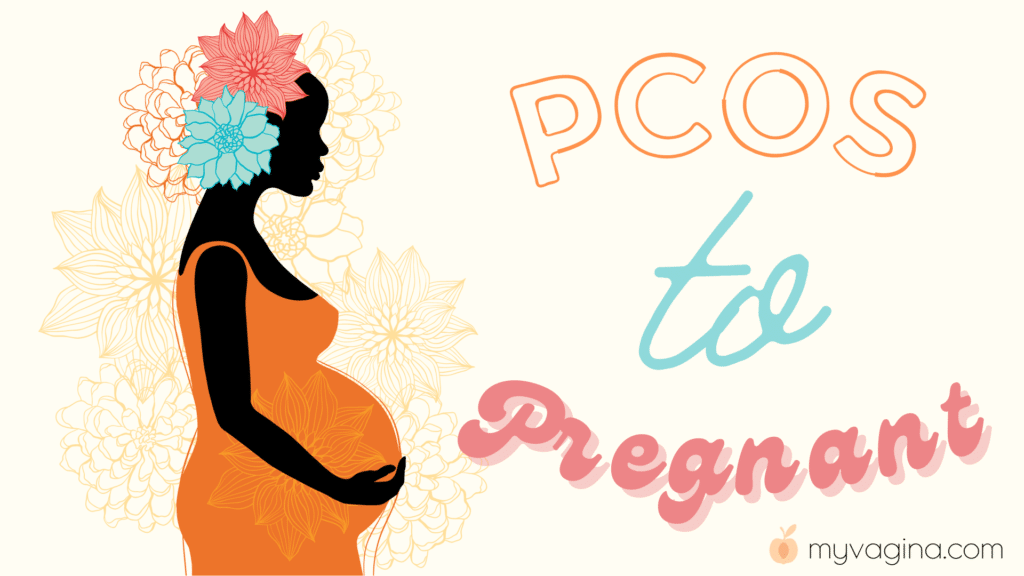Relax! You can still get pregnant with polycystic ovarian syndrome (PCOS). Having PCOS does not mean that you are guaranteed to experience infertility or even have a hard time getting pregnant at all.
But it may, so it’s best to be prepared and arm yourself with the right knowledge to deal with trying to conceive with PCOS.
What does infertility mean?
You may be surprised to know that infertility does not mean that you cannot have children. ‘Sterility’ is the term used for someone who is completely unable to have children.
Infertility simply means that you have been having regular unprotected sex for 12 months or longer and haven’t fallen pregnant in that time. You can change from being infertile to fertile with one ovulation. It is not a fixed state.
How does PCOS stop me from getting pregnant?
Having PCOS means that you don’t ovulate (release a mature egg) regularly. You need to ovulate for sperm to have a chance of meeting with an egg and creating a baby.
With PCOS, 70-80 per cent of women won’t ovulate regularly enough to conceive within 12 months of regular, unprotected sex.
We also know that those with PCOS get more bacterial vaginosis (BV), which doesn’t cause infertility specifically, but can intefere with conception and a healthy pregnancy.
Medical treatment for PCOS
Medical treatment for PCOS-related infertility starts with ovulation induction. Drugs, such as clomiphene citrate, are used to “trick” your brain into sending out hormones that stimulate the development of eggs and ovulation.
Clomiphene citrate does have it’s drawbacks though. It greatly increases the risk of a multiple pregnancy (i.e. twins or triplets). The risks of a tubal/ectopic pregnancy are increased, where the fertilised egg implants in the fallopian tube and results in a medical emergency.
This drug can thin the uterine lining and reduce fertile mucous, mainly a problem if you are doing multiple cycles on clomiphene. Rarely, it can result in ovarian hyperstimulation syndrome, a dangerous condition that requires hospitalisation.
Clomiphene may work for some, but if not, you will most likely be referred for other fertility treatments, such as IVF. Luckily, there are natural treatments that can work just as well.
Increasing your chance of becoming pregnant with PCOS, naturally
You don’t have to stay stuck with infrequent ovulation. With the right nutrition and lifestyle changes your ovaries can go back to doing their job properly – releasing an egg every month. This gives you many more chances to fall pregnant.
There is nothing wrong with your eggs, just how often they are released. Learning to chart your cycle and identify ovulation is the other key to falling pregnant faster with PCOS.
Working with a teacher to chart your fertility and know exactly when you are ovulating gives you the opportunity to get your timing right with your attempts at conceiving, so you don’t miss valuable opportunities.
You can also learn how to chart your cycle in our easy-reading, comprehensive book, The PCOS Solution.
Herbal medicine can be used for ovulation induction. You can learn about this in The PCOS Solution or see your naturopath for a more personalised prescription.







